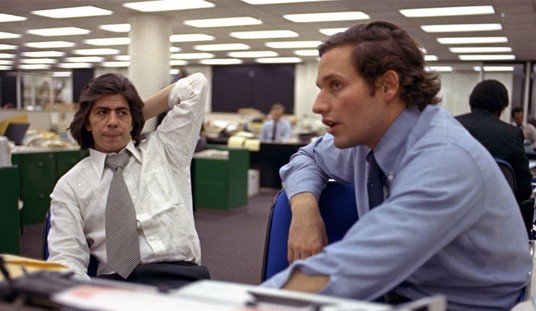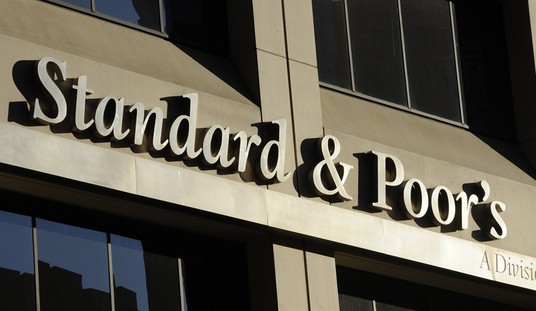The administration may deny it, but Kiev is apparently convinced that the United States is preparing to respond to armed Russian aggression in Ukraine by providing the beleaguered European state with defensive weapons.
Ahead of Secretary of State John Kerry’s visit on Thursday to Ukraine, President Petro Poroshenko told reporters on Wednesday that he has no doubt America and the West will eventually consent to Kiev’s request for lethal aid. Poroshenko remains convinced because, as The Wall Street Journal reported, for him to consent to a ceasefire deal on terms agreeable to the “pro-Russian separatists” in the country’s east would be to acquiesce to a new status quo and create pressure on Europe to ease Russian sanctions.
Russia is winning the war in Ukraine, and time is running short to prevent Moscow from forcing Kiev into capitulation. “The Ukrainian currency, the hryvnia, sank to a new low of 16.72 to the dollar Wednesday, losing more than half of its value compared with the same period last year,” The Journal reported. “Ukraine’s currency reserves are at their lowest level in more than a decade.”
NATO is mincing no words and has accused Russia of directly participating in armed conflict in Ukraine following some of the bloodiest fighting of the nearly year-long war. Still, some voices in the West are urging their governments to abandon Ukraine. They would consign Ukraine to Russian subjugation and the continent to periodic eruptions of violence in order to prevent a larger conflict – one that has the potential to draw in Western powers.
Writing in The Financial Times, Carnegie Endowment analyst Eugene Rumer recently warned that the United States would be inviting a new Blackhawk Down scenario in Ukraine if it were to provide Kiev with arms. Only instead of facing down a band of ragtag Somali rebels, the West would be confronted with the prospect of a war with the world’s preeminent nuclear power.
It is not a kindness to kindle unrealistic hopes. Of course Ukraine is a victim of aggression. But, short of a campaign like that fought by the US and its allies in the Balkans in the 1990s — which no one now advocates — no amount of US or Nato assistance can alter the fact that Russia has the upper hand. In August, and again in January, Mr Putin chose to escalate rather than allow the separatists to be defeated. Ukraine will need help rebuilding its army, and the US should provide it. But it will take years, and cannot be done in the middle of a war with a more powerful neighbour.
In contrast to this bold proposal to send arms to Ukraine, western economic assistance for the country has so far been timid. The US has promised $3bn in loan guarantees, a fraction of the tens of billions the country needs. In part, that is because Washington still suspects rampant corruption in Kiev. Will the military function better than the government it serves?
Ukraine cannot win this conflict now. It must be frozen. Ukraine’s leaders should be told as much. It will deepen the tragedy if soldiers are sent to fight a hopeless battle. A free and independent Ukraine, a solid defence of the European order and a firm rebuff of Russian aggression are worthy goals. But they do not absolve us of our responsibility to consider the consequences of our actions. The current proposal to arm Ukraine does not meet that standard.
How defeatist. In order to preserve a failing geopolitical order, one which may already be too far gone to save, Rumer endorsed freezing the current conflict in eastern Ukraine in place. Of course, this is impossible. You can no more freeze a kinetic conflict than you can prevent the tides from waxing.
Furthermore, Ukrainians know quite well that Moscow’s “frozen” conflicts have a conspicuous habit of thawing violently at the whims of the authorities in the Kremlin. From Trandsniester in Moldova to Abkhazia and South Ossetia in Georgia, Russia’s “frozen” conflicts within the former Soviet space never remain suspended for long. Following substantial Russian “investment” and influx of Russian troops and armor, these regions have essentially become Russian protectorates. The fractured states from which these territories were severed have lost much of their sovereignty.
In addition, it is unclear that an armed conflict between Russian proxies and Ukrainian troops can be contained. The downing of Malaysia Airlines Flight 17 over Ukraine, a disaster in which scores of European civilians died, is indicative of how difficult it is to confine European wars to their theater. Not since the sinking of the RMS Lusitania in 1915 has the West faced such a crisis, and Ukrainian air assets are still being shot out of the sky by pro-Russian forces using Russian weaponry.
Not everyone at The Financial Times thinks it is in the West’s best interests to pretend as though the war in Europe is containable. Writing for Carnegie Europe, FT’s Eastern Europe editor Neil Buckley advised the West to begin providing Ukraine with lethal and non-lethal aid as soon as possible, but with some necessary caveats.
The ceasefire has all but collapsed; the separatists are threatening to advance further. Ukraine needs weapons that can deter such an advance by making the costs too high for Russia to contemplate. Russian casualties in Ukraine have proved Putin’s Achilles’ heel. Last August, he agreed to a ceasefire after Moscow was unable to hush up reports of body bags returning to Russia.
Western countries should make absolutely clear to Kiev the defensive purpose of any such support, and that it does not represent a military blank check. The West should calibrate its assistance so it cannot be used to launch an all-out attack that Ukraine could never win.
Arming Ukraine could prompt escalation by Moscow. But without such a deterrent, the risks of Russian escalation may be no less—and its consequences for Ukraine even worse.
Neither Washington nor Moscow wants to go to war, but the prospect of facing mounting losses in Ukraine would alter Vladimir Putin’s calculations in a way that Western economic sanctions have not. If Russia wants to relight the fires of war in Europe, it should be made clear precisely what the consequences of that bloody decision will be.








Join the conversation as a VIP Member